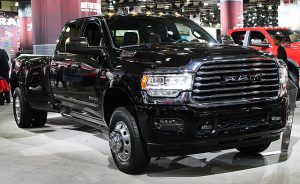Cummins, as part of a historic $2 billion federal settlement, will initiate a recall and corrective action on the engine control software in over 600,000 Ram vehicles featuring the company’s diesel engines.
This settlement, announced by the US Justice Department on Wednesday, addresses allegations that Cummins utilized software “defeat devices” to evade emissions testing and certification requirements.
The accusations involve Cummins allegedly employing devices capable of bypassing or defeating emissions controls, thereby undermining emissions testing.
As part of the settlement, Cummins will pay a previously disclosed $1.675 billion civil penalty, marking the largest ever secured under the Clean Air Act.
Additionally, an extra $325 million will be allocated for remedial measures.
Over a ten-year period, numerous Ram 2500 and 3500 pickup trucks, manufactured by Stellantis, were equipped with Cummins diesel engines featuring the contentious engine control software.
This encompasses 630,000 vehicles installed with illicit defeat devices and 330,000 equipped with undisclosed auxiliary emission control devices.
Cummins Asserts Innocence Amid Settlement

Although Cummins maintains its innocence, the settlement includes a nationwide recall of over 600,000 noncompliant Ram vehicles.
Officials are unable to estimate the current number of these vehicles in operation.
Cummins stated that they were looking forward to receiving clarification as they wrap up this lengthy issue and emphasized their dedication to achieving their goal of enabling a more prosperous world.
The company is still committed to pursuing its Destination Zero strategy, which aims to achieve zero emissions in the future by promoting economic growth, reducing resource consumption, and decarbonization.
With the transportation sector accounting for roughly one-third of all U.S. greenhouse gas emissions, especially from light-duty vehicles, these limits are critical for reducing emissions from gasoline and diesel fuel combustion, including carbon dioxide as well as other environmentally problematic pollutants.
